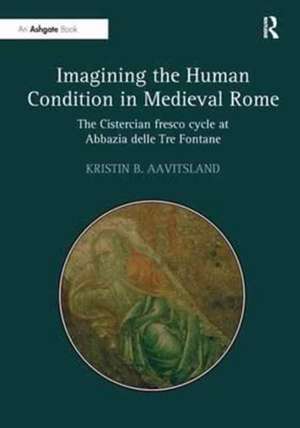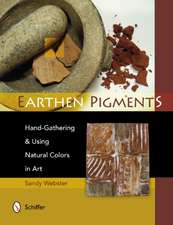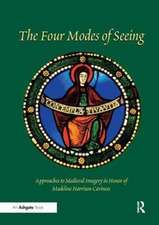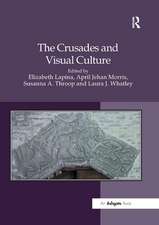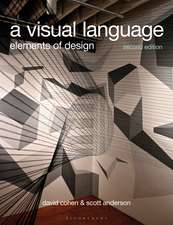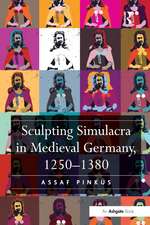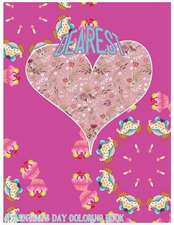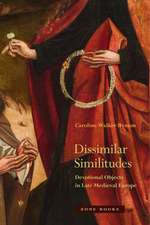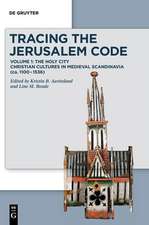Imagining the Human Condition in Medieval Rome: The Cistercian fresco cycle at Abbazia delle Tre Fontane
Autor Kristin B. Aavitslanden Limba Engleză Paperback – 8 mar 2017
Preț: 469.34 lei
Nou
Puncte Express: 704
Preț estimativ în valută:
89.82€ • 93.43$ • 74.15£
89.82€ • 93.43$ • 74.15£
Carte tipărită la comandă
Livrare economică 14-28 aprilie
Preluare comenzi: 021 569.72.76
Specificații
ISBN-13: 9781138273078
ISBN-10: 1138273074
Pagini: 360
Dimensiuni: 174 x 246 mm
Greutate: 0.45 kg
Ediția:1
Editura: Taylor & Francis
Colecția Routledge
Locul publicării:Oxford, United Kingdom
ISBN-10: 1138273074
Pagini: 360
Dimensiuni: 174 x 246 mm
Greutate: 0.45 kg
Ediția:1
Editura: Taylor & Francis
Colecția Routledge
Locul publicării:Oxford, United Kingdom
Cuprins
Contents: Preface; Introduction: the Vita Humana cycle at the abbey of Tre Fontana; Part I Contexts: The settings of the Vita Humana cycle; Learning, piety and the rhetoric of images. Part II Analyses: Paradise lost; The man in the tree of life; The eagles; The fisherman; The wheel of senses and the ages of man; The harvest of fruit in the garden of life; Birds and cages; The Vita Humana cycle: a visual florilegium? Concluding remarks; Bibliography; Index.
Notă biografică
Kristin B. Aavitsland is an art historian and medievalist, engaged as a Fellow in the Faculty of Theology, University of Oslo, Norway.
Recenzii
'Overall, Aavitsland’s book is a tremendous contribution to the understudied subject of painting in medieval Rome. Ashgate is to be commended for this addition to their list of excellent recent titles exploring medieval Italy.' CAA Reviews
'The author brings an impressively wide range of iconographic comparative material to bear...' Burlington Magazine
'... Aavitsland takes the scholarship of Roman Duecento to a new level, and one that shows great promise. ... Aavitsland has not merely provided us with a new and compelling understanding of a fresco program that has remained enigmatic among art historians for half a century, but she has also given late-duecento painting in Rome the broader artistic and intellectual context that it so often has been denied.' Speculum
'The author brings an impressively wide range of iconographic comparative material to bear...' Burlington Magazine
'... Aavitsland takes the scholarship of Roman Duecento to a new level, and one that shows great promise. ... Aavitsland has not merely provided us with a new and compelling understanding of a fresco program that has remained enigmatic among art historians for half a century, but she has also given late-duecento painting in Rome the broader artistic and intellectual context that it so often has been denied.' Speculum
Descriere
The first monograph on the Vita Humana cycle at Tre Fontane, this book includes an overview of the medieval history of the Roman Cistercian abbey and its architecture, as well as a consideration of the political and cultural standing of the abbey both within Papal Rome and within the Cistercian order. It considers the commission of the fresco cycle, the circumstances of its making and its position within the art historical context of the Roman Duecento. Examining the unusual blend of images in the Vita Humana cycle, this study offers a more nuanced picture of the iconographic repertoire of medieval art.
